Lebanon To Send Delegation To Iran To Get Free Fuel

Lebanon is preparing to send a delegation to Iran for talks on acquiring “free fuel” to ease its power outages, without being exposed to US sanctions.

Lebanon is preparing to send a delegation to Iran for talks on acquiring “free fuel” to ease its power outages, without being exposed to US sanctions.
Two Lebanese government sources said on Wednesday that Iran's ambassador in Beirut, Mojtaba Amani, has proposed an Iranian "gift" of fuel to Lebanon.
If a deal is reached between Tehran and Beirut, the fuel deliveries would be Iran's first directly to the country after it previously sent some to its ally Hezbollah, a powerful armed group that is part of Lebanon's coalition government.
Lebanon has been struggling with outages for decades but its economic meltdown since 2019 has drained state reserves and slowed down imports of fuel for government plants, leaving most of the country with just one or two hours of state-provided electricity per day. The outages have forced households to rely on subscriptions to private generators that have skyrocketed as global fuel prices spiked.
Lebanon has natural gas fields in the Mediterranean Sea but a boundary dispute with Israel has so far prevented gas extraction that could help its economy.
The delivery of free fuel to another country is a sensitive issue in Iran where an economic crisis has impoverished millions of people, while the government has failed to reach a nuclear deal with the West, which could end economic sanctions imposed by the United States since 2018.
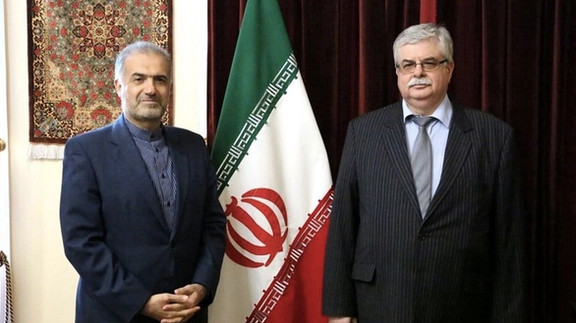
Iran's envoy in Moscow announced Tuesday that he met with Alexey Dedov, the new Russian ambassador to Tehran, who is replacing the former controversial envoy.
“I met with Alexey Dedov today. He will soon start working as Russia's new ambassador in Iran. We both stressed that relations between Iran and Russia currently stand at one of the best eras of their history,” Kazem Jalali tweeted. Jalali also wished success for Dedov and thanked the outgoing envoy Levan Dzhagaryan's (Jagarian) “efforts”.
The 61-year-old Alexey Yurievich Dedov began his career in the Soviet foreign ministry and served as the deputy head of mission of the Russian embassy in Iran from 2004 until 2009. He was posted to Islamabad, Pakistan, as ambassador in 2013. In February 2014 Dedov was promoted to ambassador extraordinary and plenipotentiary and until 2019 remained in Pakistan where he often wrote articles for Pakistan’s The Express Tribune.
The incumbent Dzhagaryan has served in Tehran since October 2011. In the past few months. Dzhagaryan has angered Iranian media and social media users on several occasions and made headlines for all the wrong reasons.
It is not clear if he was replaced for this reason or for Russia’s growing ties with Iran after the Ukraine invasion.
Anti-Russian sentiments have been quite often in Iran in the past few months, particularly since early March when Russia demanded exemption from the United States regarding Ukraine sanctions in all its dealings with Iran during talks to restore the 2015 nuclear deal (JCPOA). Iranian media and the public expressed outrage at Russia’s demand, seeing it as a hurdle in the way of concluding a deal that would lift US sanctions on Iran.
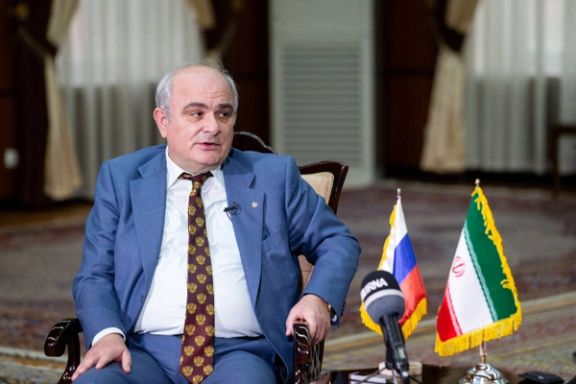
Many Iranians have a historical bias and distrust towards Russia for interferences in Iran's domestic affairs in Tsarist times, wars fought between the two countries, and later, the continuation of the same policies by the Soviets.
Despite the public’s prevalent negative view, an unprecedented host of high-ranking Iranian political and military officials attended the Russian national day ceremony at the embassy in Tehran on June 12 this year and lined up to shake hands with the controversial ambassador.
High-ranking officials traditionally keep away from most national day ceremonies at foreign missions in Tehran where alcohol is served, and women do not have to wear the hijab.
Dzhagaryan became famous among Iranian social media users in February when the Russian embassy posted a photo of him on Twitter laying a wreath at the foot of a monument to Alexander Griboyedov inside the embassy compound on Diplomats Day.
Social-media users expressed outrage because of Griboyedov’s role in a 1828 treaty, ending the Russo-Persian War (1826-1828) forcing Iran to cede the south Caucasus to the Russian Empire. Griboyedov was killed by a mob in Tehran in 1829 after being appointed Russia's ambassador.
Following Russia’s invasion of Ukraine, Dzhagaryan instructed Iranian reporters in Tehran on how to cover the event and not to use the word ‘war,’ instead to call it a ‘special military operation.’
The Russian ambassador also annoyed Iranian officials ahead of the Russian leader Vladimir Putin’s visit to Iran in July when he said in aninterview with Shargh newspaper that "hijab and the lack of alcoholic drinks in Iran prevent Russian tourists from coming to Iran.” This was seen as criticism of the Islamic Republic's underlying Islamic values.
Dzhagaryan also said Iran owed Russia hundreds of millions of euros and was not paying its debt.
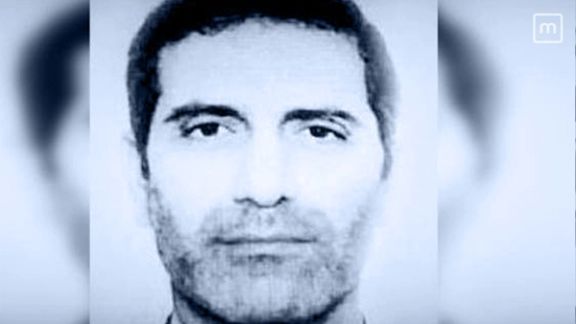
A group of Belgian and international UN experts in human rights, criminal justice, and international law have urged Brussels to resist Iran’s hostage diplomacy tactics.
In an open letter on Wednesday, a group of 68 current and former EU and UN judges, special advisers, and legal experts, wrote to Prime Minister Alexander De Croo, “Rather than helping to foster impunity in Iran by releasing a convicted terrorist, the Belgian government should unequivocally declare that Assadollah Assadi will not be released back to Iran."
Earlier in the month, Iran’s foreign ministry reiterated calls for release of the former official. Assadi, 50, a former attaché at the Iranian embassy in Austria, was convicted of plotting to bomb a gathering of the exiled opposition group Mujahedin-e Khalq Organization (MEK) near Paris on June 30, 2018. Iran says Nouri’s detention is driven by “false allegations” made by the MEK.
They expressed their deep concerns that “Releasing Assadollah Assadi back to Iran would only fuel the culture of impunity that exists for Iran's officials.”
Referring to a treaty between Tehran and Brussels on expatriation of convicts, they said that article 13 of the treaty states that "Each Party may grant pardon, amnesty or commutation of the sentence in accordance with its Constitution or other laws,” which would “effectively allow the Iranian government to grant pardon to Assadi the moment he arrives in Iran.”
Iran has been accused of wrongfully detaining at least a dozen foreign and dual nationals on trumped up charges, effectively as hostages to extract concessions from Western governments. Most of them are held on spurious spying charges.
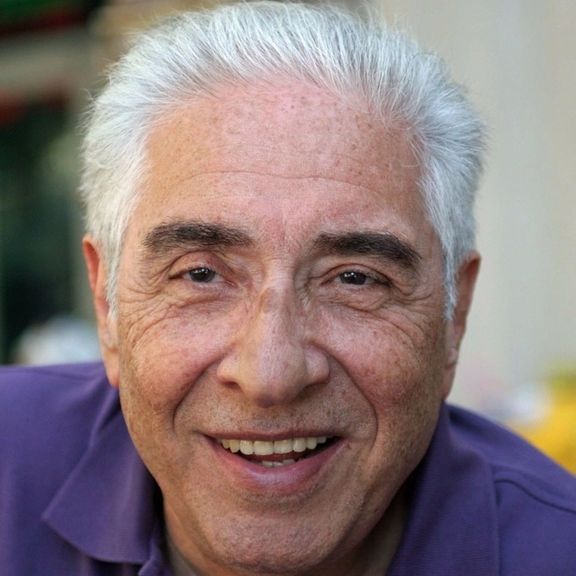
The United States has called on Iran to release American citizens it holds hostage, saying it is continuing to approach negotiations to secure the release of four Iranian-Americans.
State Department principal deputy spokesperson Vedant Patel said in a press briefing on Tuesday that the US “is seeking to secure the release of four wrongfully detained US citizens with the utmost urgency, and will continue to urge Iran to do the same.”
“Iran must allow Baquer (Bagher) and Siamak Namazi, Emad Sharghi (Shargi), and Morad Tahbaz to return home to their loved ones,” he said, declining to comment on Bagher’s medical issues over privacy concerns.
Bagher Namazi, 85, and his son, Siamak, are both jailed by the Islamic Republic, while the elder is in need of surgery “within weeks,” his family said. According to a statement from Perseus Strategies, which represents the family, he already had health problems when he was detained in 2016, and has developed further medical issues during his six years of imprisonment.
“According to multiple neurologists, Namazi must undergo surgery within weeks to clear life-threatening blockages in his left internal carotid artery,” the statement read, adding that “At the time of his arrest, Bagher was 79 years old and already suffering from numerous health conditions... The horrific prison conditions, denial of proper care, and overall trauma of the past six and a half years have been devastating for Bagher’s physical and mental health. He developed stress induced, adult-onset epilepsy, as well as severe depression.
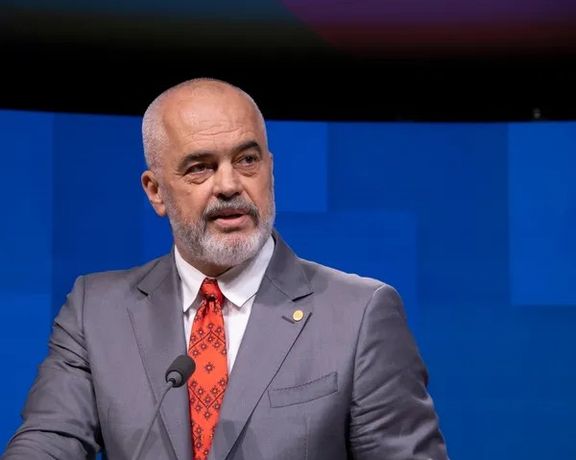
Albania has severed its relations with the Islamic Republic and ordered all Iranian diplomats and embassy staff to leave the country within 24 hours.
"The government has decided with immediate effect to end diplomatic relations with the Islamic Republic of Iran," Albanian Prime Minister Edi Rama said, following an investigation into a cyberattack in July.
"This extreme response ... is fully proportionate to the gravity and risk of the cyberattack that threatened to paralyze public services, erase digital systems and hack into state records, steal government intranet electronic communication and stir chaos and insecurity in the country," he said.
In a statement by the White House National Security Council later in the day, the United States strongly condemned the cyberattack against its NATO ally Albania, saying it will “take further action to hold Iran accountable for actions that threaten the security of a US ally and set a troubling precedent for cyberspace.”
The attack happened around the time of a conference of the exiled Iranian Albania-based opposition group Mujahideen-e Khalq (MEK). In early August, cybersecurity firm Mandiant expressed “moderate confidence” the attackers were acting in support of Tehran’s efforts to disrupt the MEK conference, which had to be cancelled as well due to a terror threat.
In its report, the company said that several factors reveal that the attack was carried out by pro-Iran hackers, including the timing, the content of a social media channel used to claim responsibility, and similarities in software code used with malware long used to target Farsi and Arabic speakers.
The July 23-24 conference by the dissident group, titled The Free Iran World Summit, was canceled following warnings from local authorities of a possible terrorist threat. Several US lawmakers were also among the invitees.

White House says there are still gaps between Tehran and Washington regarding the revival of the 2015 nuclear deal, while Israeli sources say the deal will not be signed in the foreseeable future.
Coordinator for Strategic Communications at the National Security Council in the White House John Kirby said on Tuesday “Suffice to say there's still gaps, and we're just not there yet. That doesn't mean that we're less committed to a deal. It doesn't mean that we don't still want to see if we can get there; we do. But there's still quite a bit of work for our diplomats to do.”
Kirby added, "We're not going to talk about hypotheticals here with respect to Iran. The president has been clear: You will not allow Iran to achieve a nuclear weapons capability," he continued. "[Biden] believes strongly that the best way to do that is through diplomacy."
Kirby had sounded more optimistic last month, saying that Iran had made some concessions “that allowed us to get to where we are in the process … so that’s a positive step forward,” noting that the sides are “closer now than we were even just a couple of weeks ago.”
Also on Wednesday, The Times of Israel’s Hebrew sister site Zman Yisrael reported that based on the message that was conveyed to Prime Minister Yair Lapid in his recent conversations with US President Joe Biden, a new nuclear deal between Iran and world powers is off the table. The nuclear agreement “has been scrapped and will not be signed, at least in the foreseeable future.” the report said.